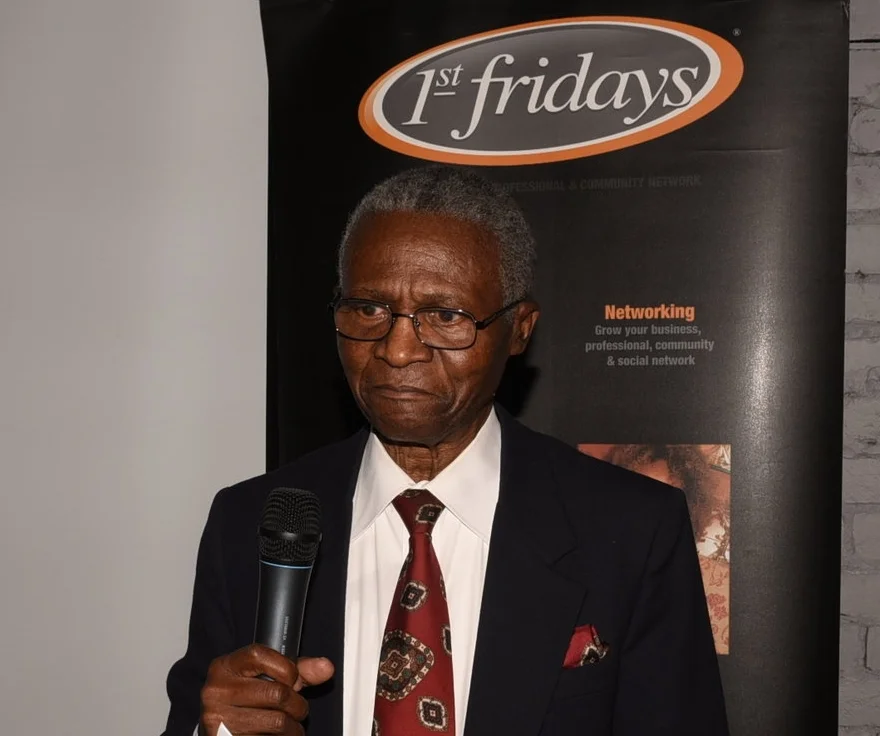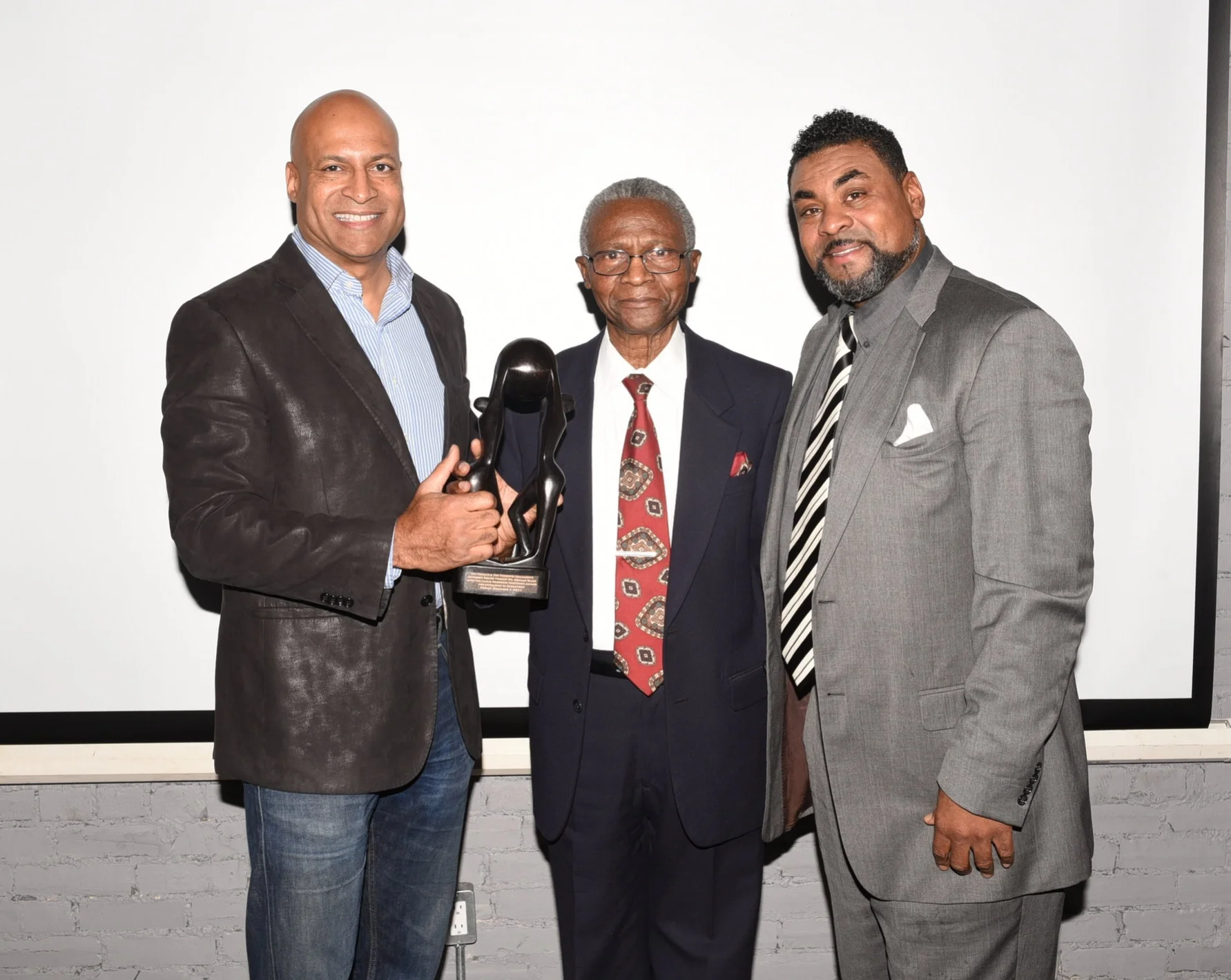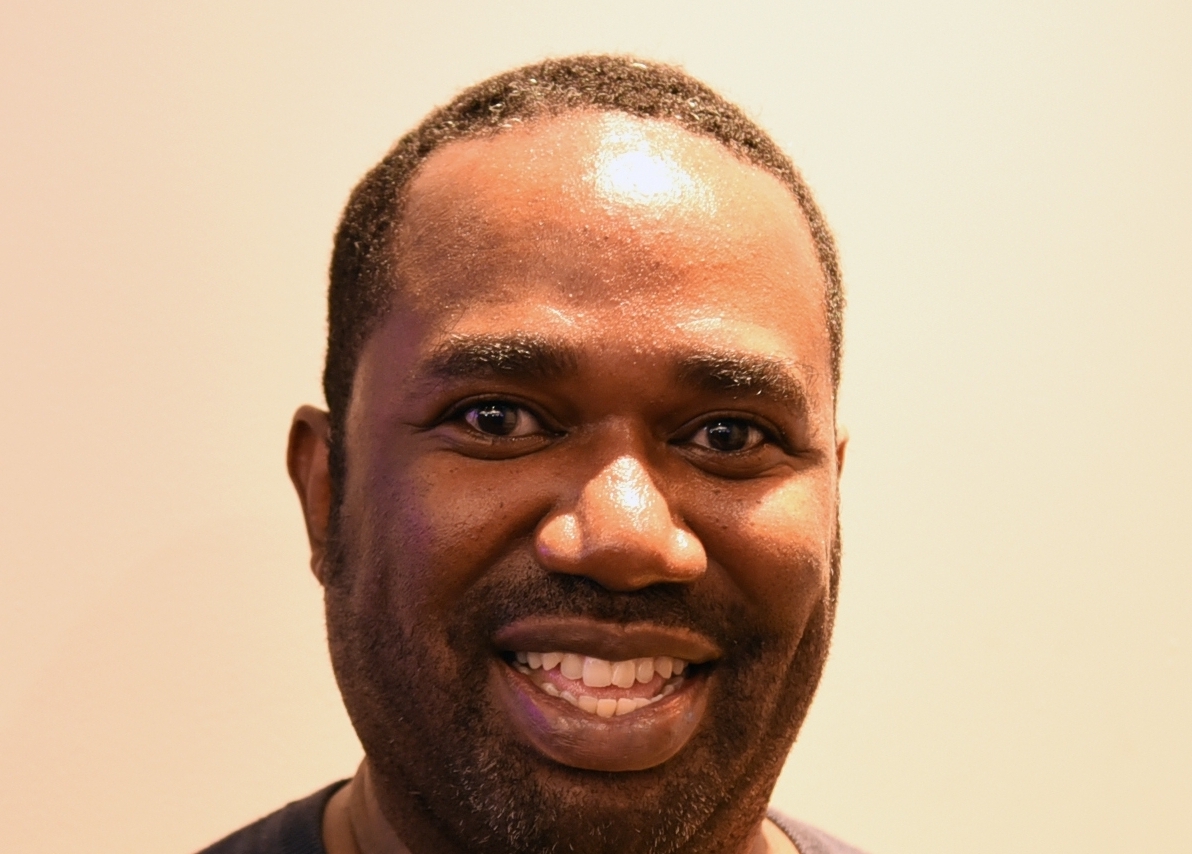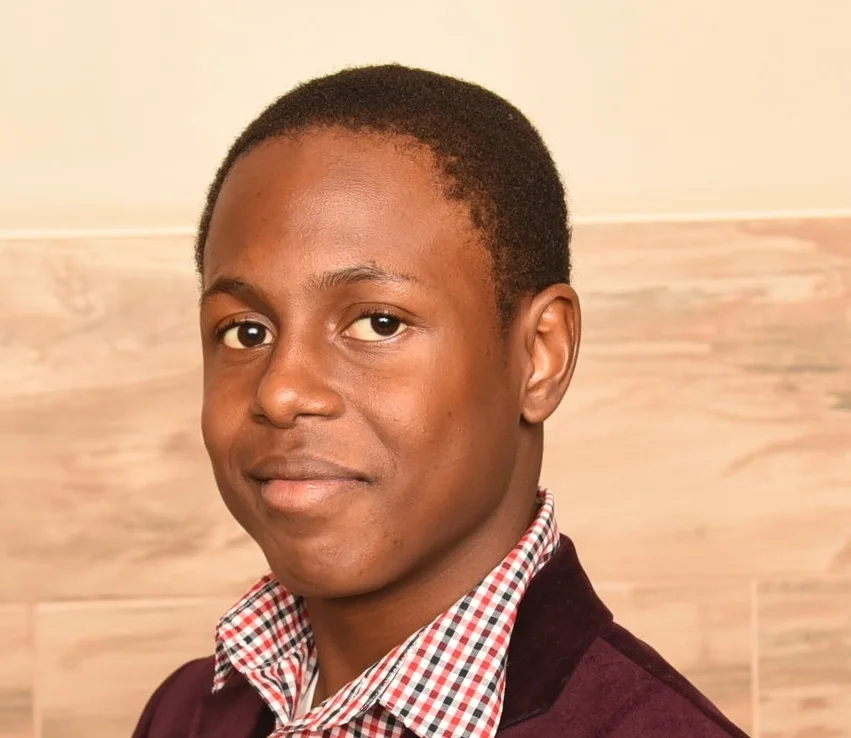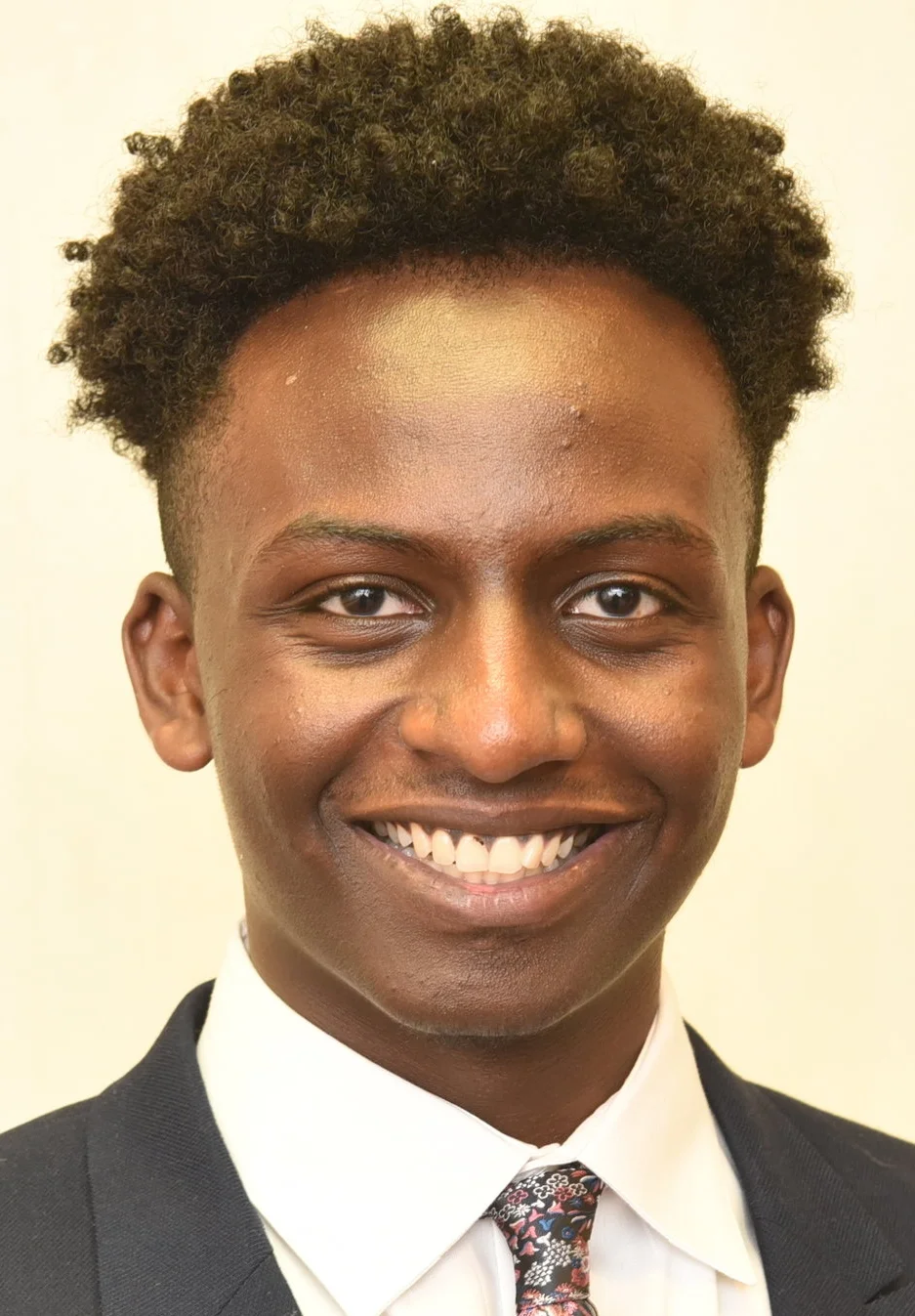Higher Marks founder honoured, but school at risk of closing
December 8, 2017
Canada’s first Black accredited school could soon be forced to close its doors after nearly four decades because of escalating inspection fees.
Founder Dr. Ronald Blake broke the news last Friday night after receiving the Jackie Robinson Fortitude Award for excellence in education at the monthly First Fridays networking event.
He established Higher Marks Educational Institute (HMEI) in 1979 as an alternative private institution to provide specialized tutoring to struggling students.
Nearly 8,000 students have passed through the remedial intervention program.
Blake said HMEI started paying inspection fees five years ago.
“We began at $900 annually and that’s increased to $7,000 for next year,” he pointed out. “We feel as if we are being effectively legislated out of business. We can’t afford to pay that kind of money.”
In this province, private schools operate as businesses or non-profit organizations independently of the Ministry of Education.
Schools offering credits towards the Ontario Secondary School Diploma (OSSD) are inspected on a cyclical basis to determine whether the school continues to meet ministry requirements regarding curriculum, assessment and evaluation policies. They are also charged an inspection fee.
Blake feels the fees his institute is required to pay is too high.
“I have been trying for the last five months without success to find out why this is the case,” he added. “I don’t think we are interfering with the potential of public schools. All we are doing is taking the ones that are failing, refurbishing them and sending back to the public school system. We have no record of a single child that has been in our program that has failed in life or failed to develop self-confidence and a positive attitude. We are not a competition. We are an ally.”
Established by community activist Dewitt Lee, the inaugural Jackie Robinson Fortitude Award was presented in 2014 to Warren Salmon who started the monthly First Fridays 23 years ago.
Every First Friday event has a theme and this month’s was ‘Education’.
Blake was honoured to be accepting an award in the name of Robinson who passed away in 1972 at age 53.
“Though Jackie lived a short life, he moved mountains,” he said. “My being conscious of Jackie Robinson’s extraordinary accomplishments, I cannot help but wonder what in heaven’s name could account for me being presented with an award bearing this man’s name. I take comfort in the fact that the Toronto Community Advisory Board, by error, has ascribed to me what is really accomplishments of an outstanding contingent of dedicated Black teachers and support staff that, by their fortitude, have made the compelling story of Higher Marks possible. Together, we have over the last 38 years, recovered 8,000 Black students who were either falling through the cracks or at risk of doing so.”
Blake paid tribute to his family for their unstinting support over the years. His wife Fay and eldest daughter Harvia Gray, who is HMEI’s director of studies, attended the award ceremony.
“My wife has been the bookkeeper and financial magician and my daughter has been a one-woman administration army,” he said. “The contributions they have made to keep the institution afloat is immeasurable.”
Lee joined Salmon in making the presentation to Blake.
Warren Salmon (l) & Dewitt Lee (r) presented the Jackie Robinson Fortitude Award to Dr. Ronald Blake
“This man created more than just a school,” said Lee. “He set up an environment that has moulded young minds to think independently, selflessly and progressively…The students are filled with purpose.”
Charlene Currie, a managing director at Skyline Management Consulting, acknowledged that HMEI is largely responsible for her success.
Unable to read and write at age seven even though she was enrolled in public school, Currie’s parents registered their youngest daughter in HMEI. She left in Grade nine, completed high school with honours and spent a year at Humber College studying public relations before transferring on an entrance scholarship to York University to study sociology.
After graduating, TD Canada Trust – with whom she worked part-time through an agency – offered her full-time employment. She returned to Humber part-time to pursue study project management and was assigned to TD’s headquarters after graduating with a certificate a year later. She was recognized for her leadership with the Vision in Action Award which is the organization’s highest honour recognizing the “best of the best” and in May 2010 was promoted to operations manager.
With private lessons from Blake to brush up on math and a few other subjects, Currie was admitted to the prestigious University of Western Ontario’s Richard Ivey School of Business where she graduated with an MBA in 2012.
Dr. Krim Lacey also credits the institute for his success.
With an undergraduate degree in sociology and criminology, he earned a Master’s from Brooklyn College of the City University of New York and a PhD from Wayne State University. He is an assistant professor of sociology and African-American Studies at the University of Michigan-Dearborn.
“Every now and then, I look at the certificate I received from Mr. Blake in 1984 and it reminds me of my journey so far, that included a pivotal stop at Higher Marks where you get a bargain basement deal to invest in young people’s future,” he said.
Brimz Group Inc. president and chief executive officer Dameion Royes said HMEI helped to improve his English skills and taught him the value of repetition and practice.
Blake’s journey has been filled with deep pot holes, sharp curves and some dead ends.
Born into a dysfunctional family in Jamaica who couldn’t support him, he spent six of his first 10 years in foster care with providers who robbed him of the opportunity of a formal education so that he could tend to their land and animals on a full-time basis.
By the time Blake was re-united with his mother, he was illiterate and unable to cope in society. With her help, he gradually learned to read and write.
“That was the basis of my understanding the need for an education and the plight the under-performer faces if they are not given a chance,” he said. “I made up my mind back then that if ever I had the opportunity in life, I would become an educator and train children who needed extra help.”
After re-uniting with his mother, he took correspondence courses and passed the General Certification Education (GCE) exams at age 24 after seven attempts. With an aptitude for drawing, his attempts to enroll in night school to study drafting were thwarted because he didn’t have the prerequisite basic math skills needed for the course.
His GCE qualifications, however, allowed him to secure jobs in Jamaica’s public sector.
“I was able to build a home for my mom and get married, but deep down I did not feel that what I was doing was sufficient to be paid well,” he said. “I desperately wanted a degree and to be an educator.”
Blake left Jamaica in 1965 to enroll in Concordia University’s Faculty of Engineering. Without a school record showing he graduated from a Jamaican educational institution, he was unable to satisfy the university’s admission requirements.
Frustrated, he approached the dean, telling him he passed the GCE exams on his own.
“He was stunned and he told me if I could do that, the university would gladly accept me,” Blake said.
His tenure at Concordia lasted half a semester before he ran out of money and was forced to abandon the program.
Dejected, Blake came to Toronto and did correspondence courses for five years before enrolling in the University of Guelph in 1972 at age 36 to study engineering.
“I was doing well in the program until I passed by a philosophy class one day and was intrigued by the subject,” he said. “I approached the guidance counsellor and was successful in switching to sociology and political science. I instantly realized that was the area I wanted to learn about.”
Blake secured his degree in just over two years and was appointed director of a non-profit organization in Toronto. His thirst for higher knowledge led him back to Guelph where he attained a Master’s in extension education & human resources development.
While pursuing post-graduate studies and without an income to support his wife and four children, Blake conceived the idea to sell patties.
“While eating wieners for breakfast one morning, it dawned on me that there was not much between the flour and meat I was consuming and Jamaican patties,” he said. “I went to every patty maker in the city with the guarantee that I would sell it for them.”
Under his “Ready Made” brand, Blake signed contracts for his patties to be sold in Toronto schools, Mount Sinai Hospital and CIBC’s downtown cafeterias. The commercial patty business was booming for nearly two years until he faced opposition from some major food giants.
“It was just simple me against the big boys and there was no way I could win,” he said. “I guess I was doing too well for their liking and they did not want me in business anymore.”
Blake sold encyclopedias briefly before launching his private school.
“I had to walk around with my certificates and degrees to prove to parents that I was qualified to teach,” he said. “For $20, they would then allow me to work with their underachieving children. I started out in Ontario Housing because kids in that environment needed a lot of help…The big break came when a Jewish mother brought her son, who was trying to get into medical school, for me to work with because he had failed some exams. I promised her that if I taught him, he would not fail.
“When the exam results came out, he was not among those successful and the lady thanked me for trying with her son. Three days later, she came back to say the university made a mistake and he in fact did pass the exams. She was so elated she brought Global TV to interview me.”
Though retired six years ago, Blake -- who in the 1970s co-founded the Black Heritage Association which changed its name to the African Canadian Heritage Association in 1992 -- occasionally tutors a few students who are in desperate need of specialized help.
He said his goal was to enroll 7,000 students.
“That was my original aim because I figured if I could recover 7,000 Black students, then they would perhaps marry one another and we could produce a powerful middle-class,” said Blake who has a doctorate in religious studies from Friends International Christian University and is the founder of Dialogue of Faith Church of Canada which was established in 2005.

